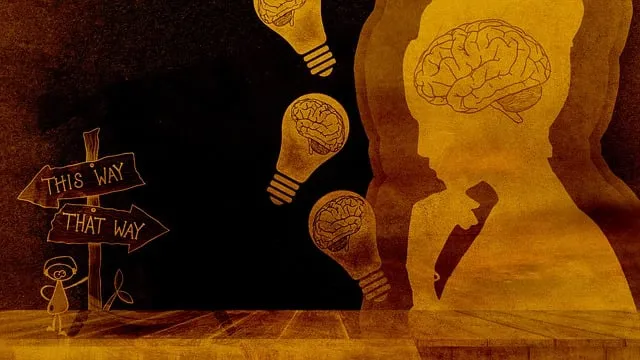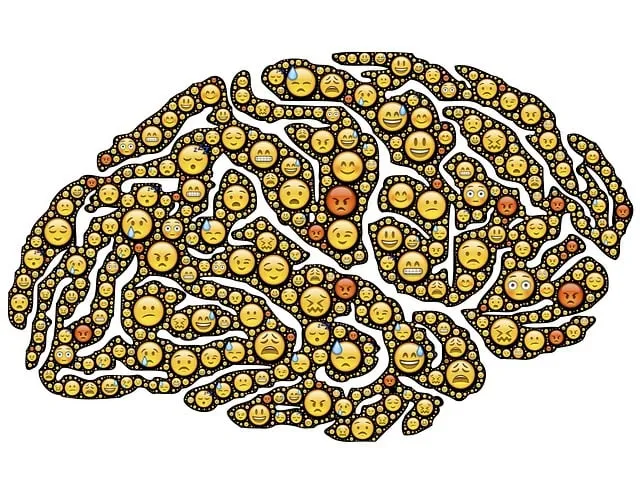Lone Tree Kaiser Permanente behavioral health services reviews highlight cultural sensitivity as a key driver for high-quality mental healthcare, especially within diverse communities. By integrating cultural competence, professionals tailor interventions to patients' unique backgrounds, leading to improved resilience, conflict resolution skills, and reduced burnout. This approach overcomes language disparities and cultural stigmas, fostering trust and enhancing treatment outcomes through culturally relevant self-care practices. Positive reviews attest to Lone Tree Kaiser Permanente's success in creating an inclusive environment that respects diverse ethnic and socio-cultural needs.
Cultural sensitivity is a cornerstone of modern mental healthcare, ensuring equitable and effective treatment for a diverse patient population. This article explores cultural competence in mental healthcare, highlighting its profound impact on positive patient outcomes. We delve into common challenges and offer practical strategies to integrate cultural sensitivity. Drawing from best practices at Lone Tree Kaiser Permanente Behavioral Health Services, this piece provides valuable insights through case studies, showcasing how culturally responsive care can transform lives, as evidenced by reviews of their services.
- Understanding Cultural Competence in Mental Healthcare
- The Impact of Cultural Sensitivity on Patient Outcomes
- Challenges and Barriers to Providing Culturally Sensitive Care
- Strategies for Incorporating Cultural Sensitivity in Practice
- Case Studies: Best Practices from Lone Tree Kaiser Permanente Behavioral Health Services
Understanding Cultural Competence in Mental Healthcare

Cultural sensitivity is a cornerstone of effective mental healthcare practice, especially within diverse communities like those served by Lone Tree Kaiser Permanente behavioral health services reviews. It involves understanding and respecting individuals’ cultural backgrounds, values, and beliefs to deliver care that resonates with them. This approach goes beyond mere tolerance; it aims to foster an environment where all patients feel seen, heard, and valued.
By integrating cultural competence, mental health professionals can enhance their ability to connect with clients from various ethnic, racial, and socioeconomic backgrounds. This is crucial in building resilience among patients, teaching effective conflict resolution techniques, and preventing burnout among healthcare providers. At Lone Tree Kaiser Permanente, for instance, behavioral health services reviews highlight the importance of tailoring interventions to reflect the unique cultural landscapes of each patient, ultimately improving treatment outcomes.
The Impact of Cultural Sensitivity on Patient Outcomes

Cultural sensitivity plays a pivotal role in shaping patient outcomes within mental healthcare settings, as it bridges the gap between diverse populations and high-quality care. When mental health professionals integrate cultural competence into their practices, they create an environment where patients from various ethnic, racial, and socioeconomic backgrounds feel understood, respected, and supported. This nuanced approach goes beyond mere awareness; it involves adapting therapeutic techniques, communication styles, and self-care practices to align with the unique cultural beliefs and values of each individual.
For instance, Lone Tree Kaiser Permanente behavioral health services reviews highlight successful cases where therapists have incorporated mind over matter principles and emotional well-being promotion techniques tailored to specific cultures. By recognizing and valuing these differences, healthcare providers can enhance patient engagement, foster trust, and improve treatment adherence. As a result, patients are more likely to experience positive outcomes, including reduced symptoms, improved coping mechanisms, and enhanced overall quality of life, ultimately reflecting the self-care practices that align with their cultural identities.
Challenges and Barriers to Providing Culturally Sensitive Care

Providing culturally sensitive care within mental healthcare practices presents unique challenges, especially in diverse communities like those served by Lone Tree Kaiser Permanente behavioral health services reviews. Understanding and respecting cultural differences are essential for building trust and fostering effective treatment alliances. However, barriers such as language disparities, differing therapeutic traditions, and cultural stigma often impede these efforts.
For example, patients from various ethnic and cultural backgrounds may have distinct self-care routine development needs and emotional regulation strategies. Healthcare providers must be adept at incorporating these nuances into treatment plans while also addressing burnout prevention strategies to maintain their own well-being. Overcoming these challenges requires ongoing training, cultural competency initiatives, and a commitment to integrating evidence-based practices that respect the diverse tapestry of mental healthcare seekers.
Strategies for Incorporating Cultural Sensitivity in Practice

Incorporating cultural sensitivity into mental healthcare practice is a multifaceted approach that begins with education and continues through every interaction with clients. At Lone Tree Kaiser Permanente behavioral health services, reviews highlight the importance of understanding diverse cultural contexts to provide effective care. One key strategy involves training staff in Cultural Sensitivity in Mental Healthcare Practice, equipping them with the knowledge to recognize and respect different cultural beliefs, values, and practices. This includes learning about various ethnic groups’ unique perceptions of mental illness, coping mechanisms, and communication styles.
Additionally, implementing Crisis Intervention Guidance tailored to diverse cultures can significantly enhance care. By addressing the Mental Illness Stigma Reduction Efforts, healthcare providers can create a safe space for clients from varied backgrounds to express themselves honestly. Incorporating these strategies not only improves individual patient outcomes but also fosters trust within communities, encouraging more individuals to seek help without fear of judgment or misunderstanding.
Case Studies: Best Practices from Lone Tree Kaiser Permanente Behavioral Health Services

Lone Tree Kaiser Permanente Behavioral Health Services stands as a beacon of excellence in cultural sensitivity within mental healthcare practices. Through a series of meticulously designed case studies, they’ve demonstrated the profound impact of incorporating diverse cultural perspectives into therapeutic approaches. These reviews consistently highlight the service’s ability to foster an inclusive environment, catering to the unique needs of each patient from various ethnic and socio-cultural backgrounds.
The facility’s success lies in implementing initiatives like the Self-Care Routine Development for Better Mental Health program, which encourages patients to integrate cultural practices into their self-care regimens. Additionally, their Community Outreach Program has been instrumental in connecting with hard-to-reach populations, offering mental health education programs designed to address specific cultural barriers and promote understanding. These strategies not only enhance patient outcomes but also contribute to the broader goal of making mental healthcare more accessible and culturally competent.
Cultural sensitivity in mental healthcare is not just a best practice, but an essential element for improving patient outcomes and fostering inclusive environments. As evidenced by the case studies from Lone Tree Kaiser Permanente Behavioral Health Services, incorporating cultural competence can lead to significantly better care. By understanding diverse cultural contexts, navigating challenges, and adopting effective strategies, mental health professionals can ensure their services resonate with every individual they serve. Embracing these principles is a crucial step towards revolutionizing mental healthcare, making it accessible, respectful, and life-changing for all.






